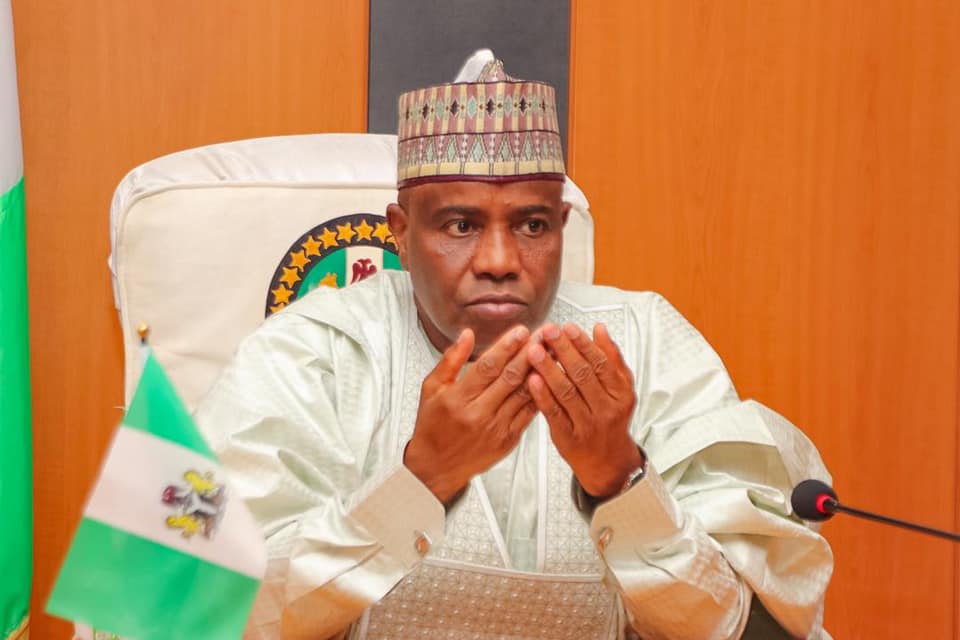The Economic and Financial Crimes Commission (EFCC) has taken former Sokoto State governor and serving Senator, Aminu Waziri Tambuwal, into custody over allegations of massive cash withdrawals totaling ₦189 billion during his eight-year tenure as governor.
Tambuwal, who currently represents Sokoto South in the Senate, arrived at the EFCC headquarters in Abuja at about 11:30 a.m. on Monday and was immediately ushered in for questioning. The alleged infractions reportedly contravene provisions of the Money Laundering (Prevention and Prohibition) Act, 2022.
While details of Monday’s interrogation remain sketchy, sources familiar with the investigation said the probe is linked to suspicious withdrawals from Sokoto State government accounts between 2015 and 2023, allegedly funnelled to private individuals and political associates.
Tambuwal, 59, is a lawyer and career politician who served as Speaker of the House of Representatives from 2011 to 2015 before becoming governor of Sokoto State for two terms. His political career has been marked by both high-profile achievements and controversy.
In 2017, the EFCC openly challenged his decision to grant state pardons to individuals, including former state officials, who were standing trial for alleged involvement in a ₦15 billion fraud during the administration of his predecessor, Attahiru Bafarawa. The commission argued that the governor had no legal authority to halt ongoing federal prosecutions.
Reports also indicate that as far back as April 2022, anti-graft investigators had been probing alleged diversion of ₦189 billion from state coffers under Tambuwal’s watch. Those named in connection with the withdrawals include several prominent political figures and contractors.
Monday’s development represents the most serious legal challenge yet for the politician, who wields significant influence within the Peoples Democratic Party (PDP) and remains an important player in Nigeria’s national politics.
If the EFCC’s findings lead to formal charges, the case could spark one of the most high-profile corruption trials in recent years, testing both the reach of Nigeria’s anti-corruption laws and the political will to prosecute influential figures.









